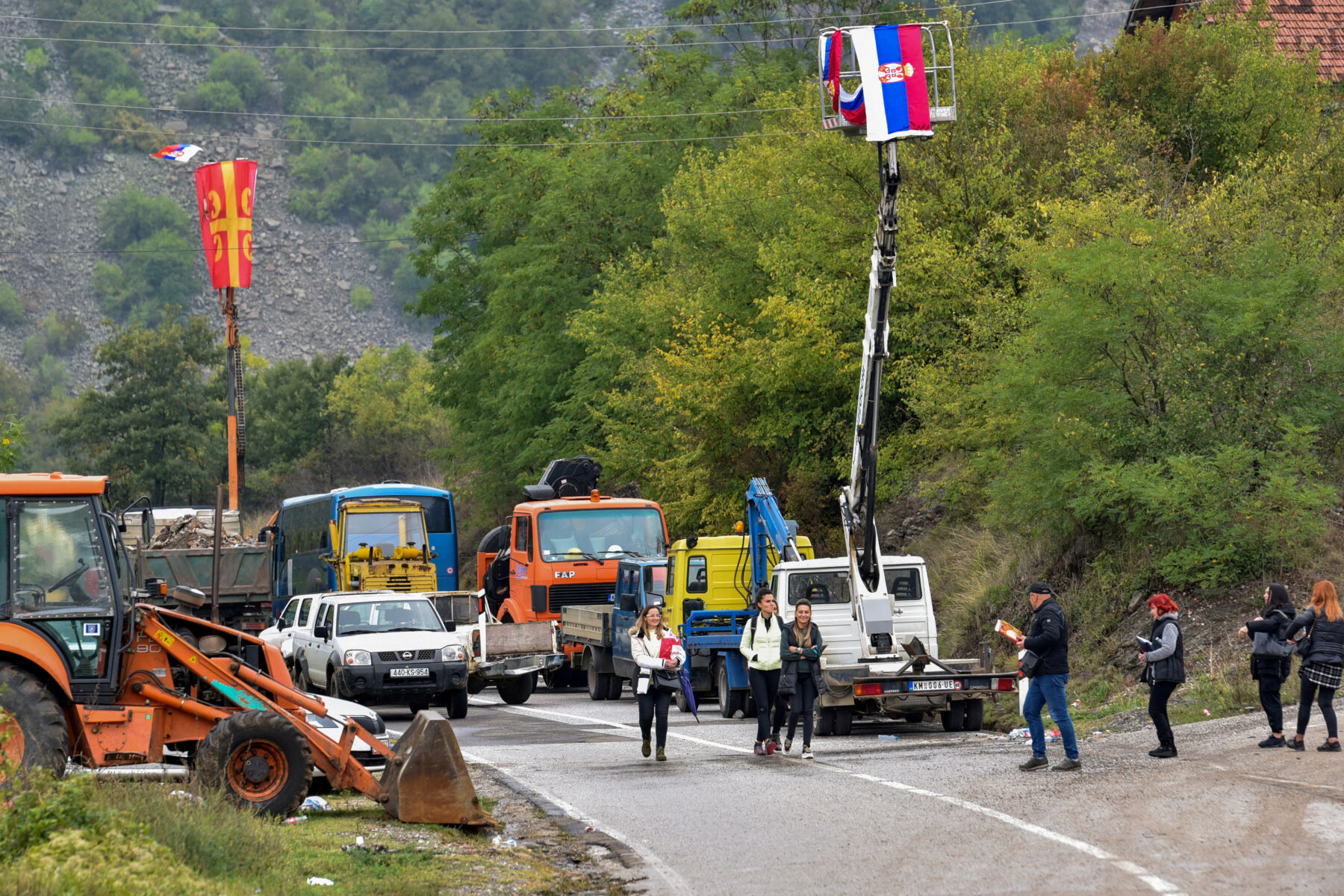Serbian arrest of armed Kosovo police stirs tension, claims of kidnapping

Tensions have heightened as Serbian officials claim they have apprehended three armed Kosovo police officers within Serbian borders, whilst Kosovo authorities assert the officers were patrolling within their territory and were consequently “kidnapped.” Kosovo’s Prime Minister, Albin Kurti, held Serbia responsible for the abduction and called for the officers’ release, claiming they were detained within Kosovo’s borders. In response, Serbian President Aleksandar Vucic accused Kurti of inciting violence and insisted the officers were arrested within Serbian territory.
Kurti took to his Facebook page, stating: “The entry of Serbian forces into the territory of Kosovo is aggression and aimed at escalation and destabilisation.” Kosovo’s Interior Minister Xhelal Svecla supported this stance, denouncing the “kidnapping” which he said “violates any agreement and is against international norms.” He urged the international community to promptly increase pressure on Serbia to ensure the release of Kosovo’s police officers.
Vucic, however, asserted the arrested officers were located approximately one mile within Serbian territory, near the village of Gnjilica. He rejected any claims of Serbian police entering Kosovo. Serbia confirmed the officers were equipped with automatic weapons and military gear, including GPS devices, maps, and additional equipment.
The Serbian government recently released a video capturing masked men hauling off a group of handcuffed men. Vucic informed that Belgrade is open to presenting all evidence of their detention and accepting an international inquiry into the arrests. He also indicated the possibility of relocating some of Serbia’s military personnel stationed near the boundary to garrisons inside Serbia in order to reduce tensions.
In light of these events, Kosovo has now banned all vehicles with Serbian licence plates from entering its territory. This incident threatens to provoke rising tension in the predominantly Serbian northern region of Kosovo, which has experienced sporadic violence in recent weeks.
Kosovo declared its independence from Serbia in 2008, however, Belgrade – supported by key allies China and Russia – has continued to deny Kosovo’s independence. This disagreement has hindered Kosovo from securing a seat at the United Nations. The strained relationship between the two nations saw surges of violence last month, with 30 NATO peacekeepers and 52 Serbs becoming injured during clashes in predominantly Serbian municipalities in northern Kosovo.
Latest Thailand News
Follow The Thaiger on Google News:


























